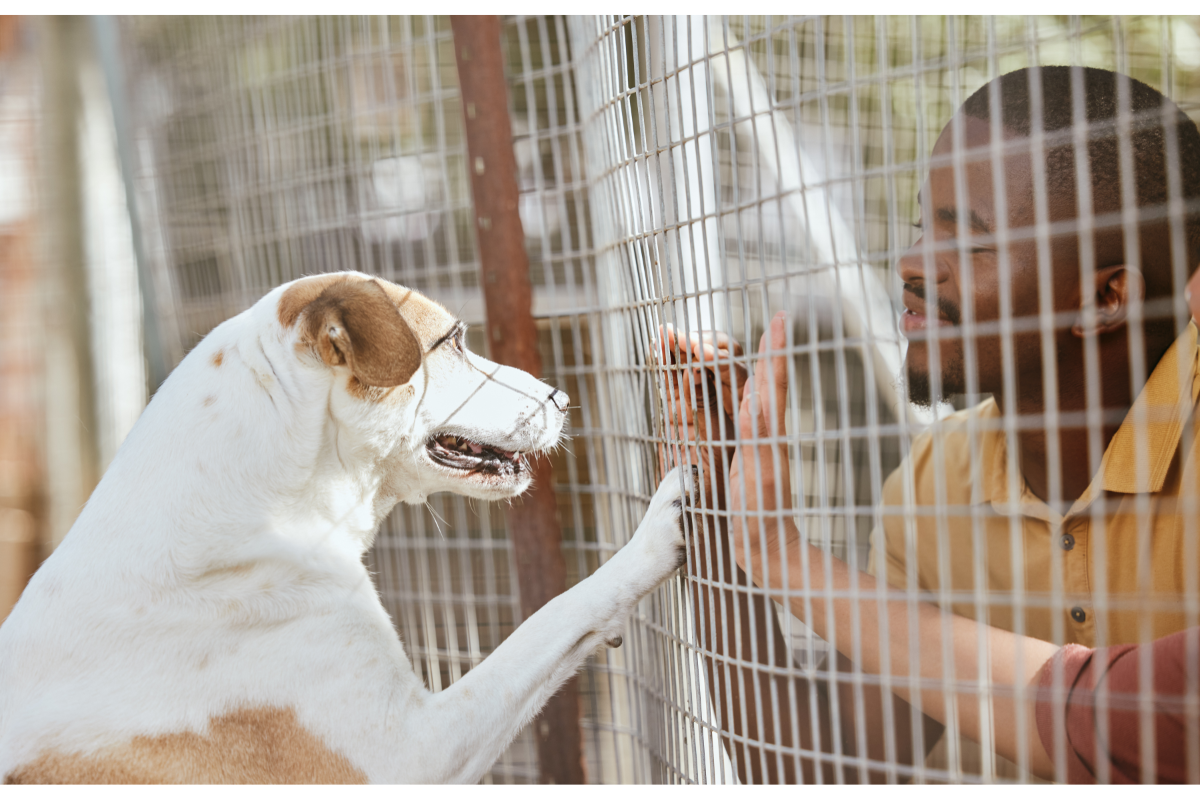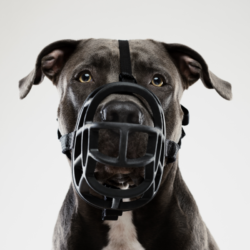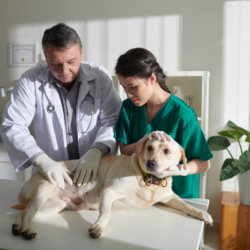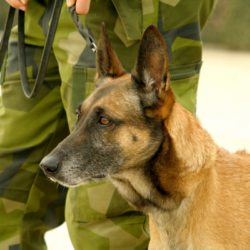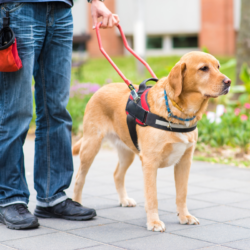Kennel cough, or canine infectious tracheobronchitis, is a highly contagious respiratory disease that particularly affects dogs living in groups. It is often caused by a combination of viruses and bacteria, such as the Parainfluenza virus and Bordetella bronchiseptica bacteria. Infectious tracheobronchitis manifests itself as a severe dry cough, similar to a human cold, and can last for several weeks.
What causes this disease?
Kennel cough is caused by a variety of pathogens, mainly viruses and bacteria that cause inflammation of the trachea and bronchi. The main culprits are the canine parainfluenza virus and the Bordetella bronchiseptica bacterium, although other infectious agents such as adenoviruses, herpes viruses and reoviruses may also be involved. Transmission is mainly airborne, via aerosols produced by an infected dog when it coughs or sneezes.
Contagion can also occur through direct contact between dogs, particularly at dog gatherings, boarding kennels or breeding farms. The disease spreads easily in environments where dogs live together, such as kennels, hence its name. Environmental conditions such as poor ventilation, cold temperatures and stress can weaken a dog’s immune system, favouring the development of the disease.
It is important to note that kennel cough is not transmissible to humans, which means that dog owners need not worry about their own health. However, the condition is still highly contagious in dogs, even days or weeks after the symptoms have disappeared. It therefore requires particular vigilance, especially in the presence of puppies or dogs with weakened immune systems.
What are the symptoms of kennel cough?
Symptoms of kennel cough generally appear between three and five days after infection. A dry, hacking, painful cough is the main clinical sign, easily triggered by light palpation of the trachea. Nausea, sneezing, sniffling or vomiting may accompany this cough. Despite its persistence, the dog generally retains its appetite and continues its normal activities, although nasal and ocular secretions may appear.
In more severe cases, particularly in puppies and older or weaker dogs, kennel cough can develop into pneumonia, causing high fever, breathing difficulties and a hacking cough. The incubation period is around two to fourteen days, during which time the dog may be contagious without showing any clinical signs. The disease generally lasts between two and three weeks, but the after-effects of the cough may persist even longer, particularly in the event of relapses.
Kennel cough can also lead to serious complications, such as bacterial superinfections, which require immediate veterinary attention. Dogs living in groups, returning from a stay in a kennel or attending dog shows are particularly at risk. Early diagnosis and appropriate treatment are essential to avoid complications and ensure rapid recovery.
How is the disease diagnosed?
Diagnosis of kennel cough is based primarily on a full clinical examination by your vet. He will take into account the animal’s history, such as its living conditions, recent gatherings with other dogs and vaccination history. On the basis of this information, the vet will be able to confirm the diagnosis and assess the severity of the infection.
If necessary, further tests can be carried out to identify the pathogens involved. These tests include analysis of respiratory samples, serological tests and PCR (polymerase chain reaction), which can detect the presence of specific viruses or bacteria. The vet uses chest X-rays to assess the condition of the animal’s lungs if complications such as pneumonia are suspected .
These laboratory tests are essential for determining the most appropriate treatment and avoiding any complications. Once the diagnosis has been confirmed, the vet can draw up a treatment plan tailored to the animal’s situation, taking into account the severity of the infection and the dog’s general condition.
What treatments are available?
Treatment for kennel cough varies according to the severity of the infection and the pathogen involved. In the case of a bacterial infection, the vet will prescribe antibiotics, often as aerosol therapy to target the respiratory tract directly. Anti-inflammatories and analgesics are also administered to reduce inflammation and relieve pain. In the event of a severe cough, bronchodilators are used to make it easier for the dog to breathe.
In less serious cases, the disease often resolves spontaneously within a few weeks. However, it is advisable to limit the dog’s physical activity and ensure it is well hydrated and fed. If symptoms persist or worsen, a new veterinary consultation is necessary to adjust the treatment.
For viral infections, vaccination remains the most effective means of prevention. Dogs vaccinated against the main kennel cough pathogens have less severe symptoms and recover more quickly. For the duration of the treatment, it is vital to isolate the animal to avoid contaminating other dogs.
What are the natural alternatives?
When the symptoms of kennel cough are mild, it is possible to use natural treatments to relieve the animal. Scots pine bud, for example, helps to thin bronchial secretions, making them easier to expel.Plantain extract soothes irritated mucous membranes in the respiratory tract thanks to its anti-inflammatory and soothing properties.Echinacea also boosts the dog’s immune system and reduces inflammation of the respiratory tract.
In phytotherapy, ravintsara is an antiviral and expectorant plant that stimulates the body’s natural defences, helping to combat viral infections such as kennel cough. Astragalus is ideal for convalescent or elderly dogs, as it stimulates the production of immune cells.
Consult your vet before using these natural alternatives, as some plants, such as liquorice, are contraindicated for animals suffering from cardiovascular, liver or kidney disease. Always combine natural treatments with veterinary advice to avoid any complications.
What are the preventive measures?
The best way to prevent kennel cough is to vaccinate your pet. There are several vaccines, administered intranasally or by injection, that protect against the Parainfluenza virus and the Bordetella bronchiseptica bacterium. Vaccination should be carried out from the age of 3 to 4 weeks. An annual booster is then recommended to maintain optimum protection.
In the community, it is essential to observe strict hygiene measures: good ventilation of the premises, control of temperature and humidity, and isolation of sick dogs. Vaccinated dogs can still contract the disease, but the symptoms will be less severe. Dogs attending gatherings or staying in kennels should be vaccinated at least 72 hours before potential exposure.
Proper prevention, combined with hygiene measures and regular vaccination, can considerably reduce the risk of contamination and ensure the health of dogs, even if they come into frequent contact with other animals.

